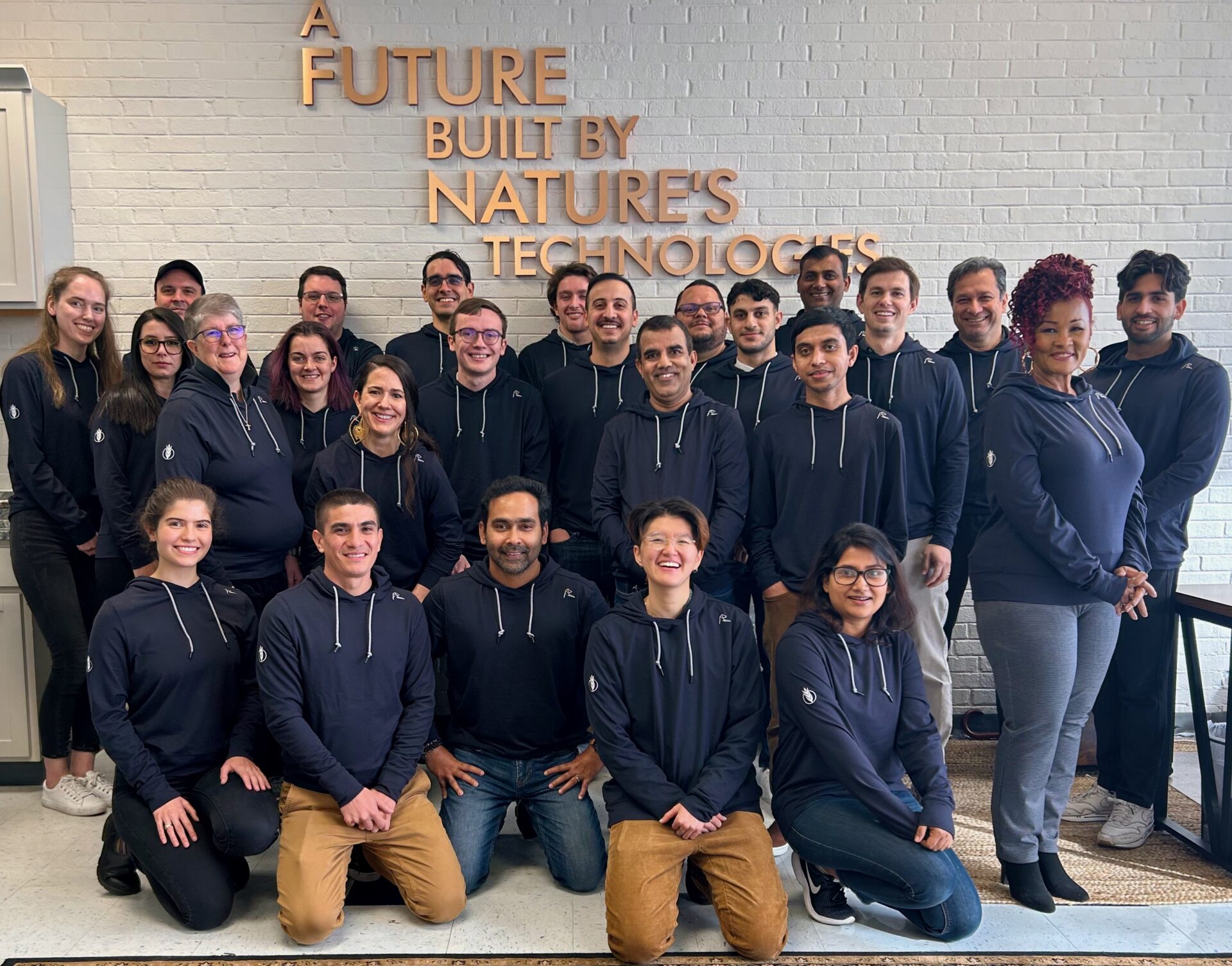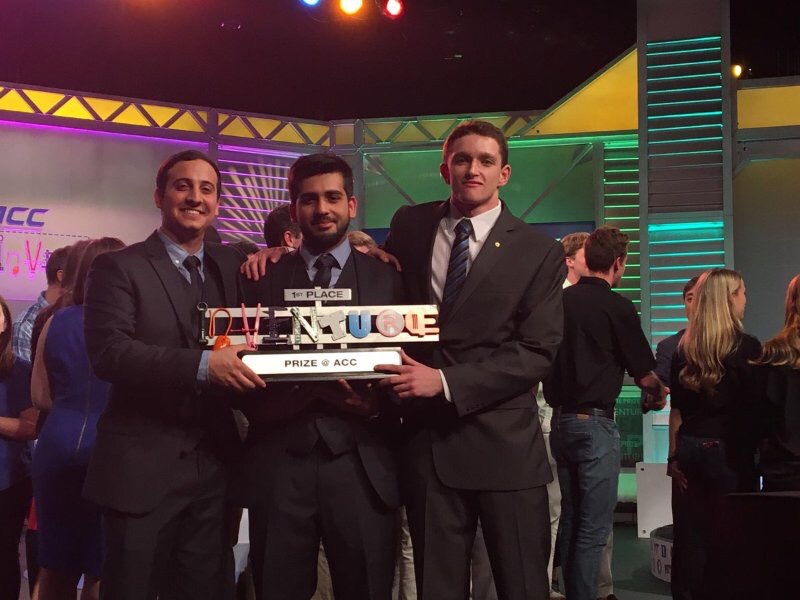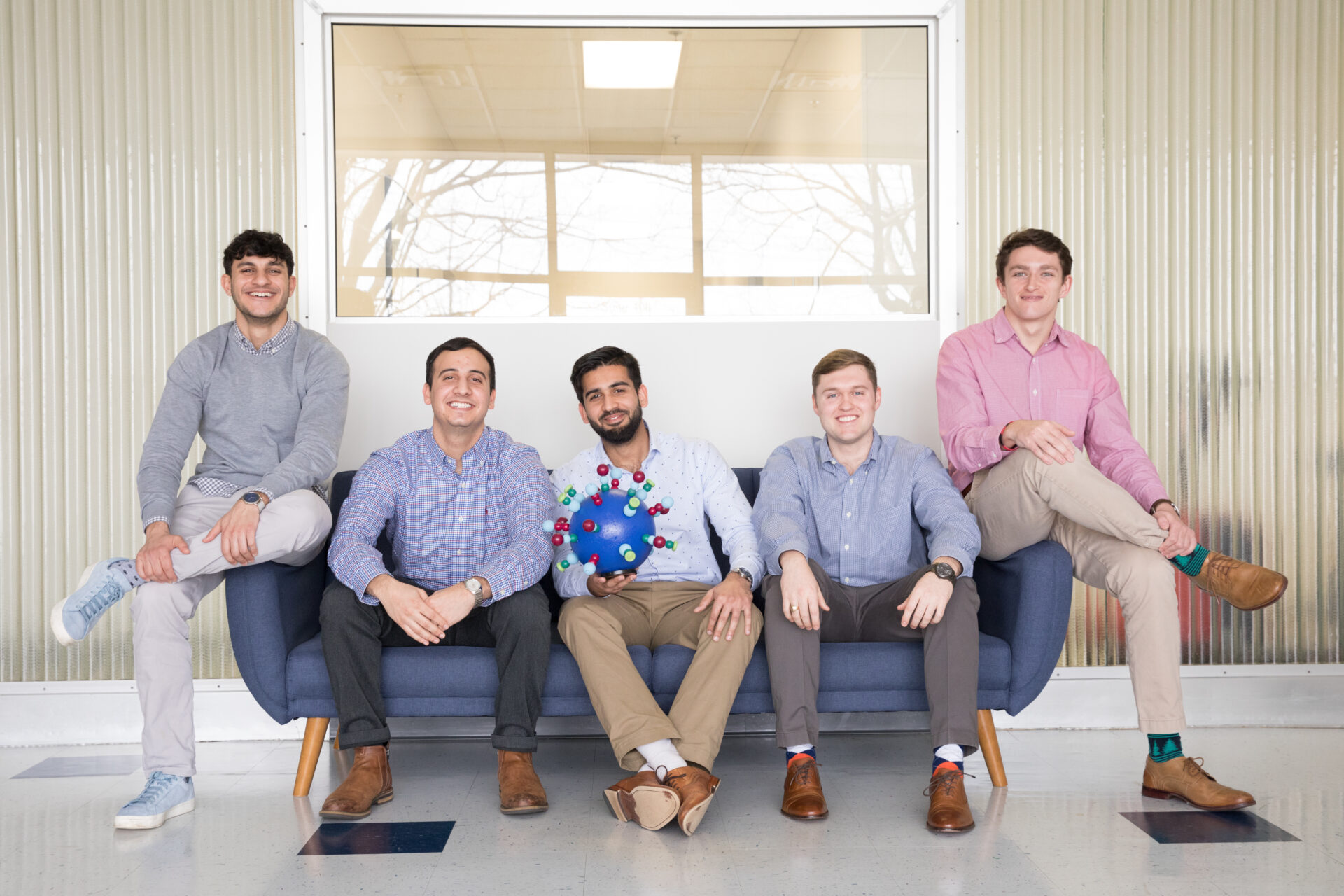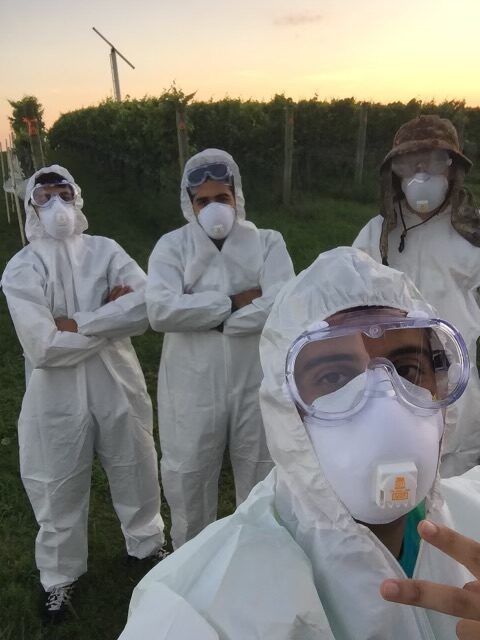Biomedical engineering or crop biologicals? That was the question Payam Pourtaheri and Ameer Shakeel faced upon graduating from the University of Virginia [UVA] seven years ago.
The two went on to start AgroSpheres, which offers a novel delivery system for more targeted pesticide use, but in many ways, having a non-traditional (i.e., non-agricultural) background has worked to their advantage, says CEO Pourtaheri.
Having raised a $25 million Series B at the end of last year, the AgroSpheres team is now building a pilot facility in Charlottesville, Virginia and working towards regulatory approvals with the United States Environmental Protection Agency (EPA) as well as a new pipeline of products.
The company aims to have its first product approved and in market by the end of 2024.
Below, Pourtaheri and Shakeel discuss their startup journey from student research project to internationally recognized startup.

AgFunderNews (AFN): What led you to start Agrospheres?
Payam Pourtaheri (PP): At UVA I started learning about biomedical engineering and medicine. That’s when I met Ameer, through our professor Mark Kester. [He] passed away about a year and a half ago, but he was a really entrepreneurial professor at the University of Virginia in the pharmacology lab. We met him there and started working on our project, and that’s what became AgroSpheres.
Ameer Shakeel (AS): The research project was widely motivated by some of the exposure we had that pesticides can be quite bad, especially in parts of the world where you don’t have the right PPE [personal protective equipment].
We developed a spray to degrade pesticides. That was the genesis of our platform technology — that you can spray a trait or a biomolecule of interest. Around the time we were graduating, [we faced] a decision between going to med school or going into consulting or other stuff people from engineering do, or trying to make a real impact.
PP: We brought in about $120,000 in grants through student competitions. We did our school one, our state one, we won the invention of the year 2016 from the USPTO and started getting a lot of traction on our pesticide degradation spray.
But the farmer and the industry feedback was, “We don’t want a pesticide remediation spray, we want to spray fewer chemicals. What can you guys do?”
So we started thinking about our pivot. We went to Europe, where we were in a competition called Thought for Food. We actually won two awards.
So that was a great moment where we went globally and saw the various issues facing various different countries in food production. Doing that was inspiring and then during that time, Ameer went and raised our seed round and got a really good advisor from Novozymes to join the team.
AS: My last year it was getting harder to balance classwork with doing AgroSpheres, and it’s very obvious which I cared about more.
During my last year we were camping out at local vineyards, doing our experiments, spraying our pesticide degradation technology. And what we were finding was that there was a lot more pesticide than we thought there would be given our experiment, and it suggested to us that they had been building up for years, so we were degrading a lot more pesticide than we actually input. That was very inspiring for us to see that you can build a technology powerful enough to actually eliminate pesticides.
The day of my graduation, I hopped on a plane and went to Amsterdam, Copenhagen and Turkey. In Turkey, there were individuals who ran an enzyme company, which was great for us to get early exposure to the manufacturing fermentation side of it. And I think with a couple weeks of runway left, we ended up raising the [seed] round. And that was how we started things off.

AFN: Tell us about AgroSpheres’ technology.
AS: When we were entering the field, everyone was betting on whole microorganisms.
The bet we made was, you have this whole microbe, maybe 1% to 3% of what it makes is the actual product or what does the heavy lifting. Our bet was we need a system to isolate that trait, manufacture it effectively, and deliver it in a very stable manner. And that’s exactly what our technology lends itself to.
It’s a fermentation technology where you can put the trait in a microorganism and the microorganism produces this trait, which may be a protein, an RNA or a metabolite — anything that can be biologically produced. It produces it in a very stable format — it’s encapsulated. Basically, it has a shell around it, and that’s what we recover at the end of the fermentation.
The advantages of that is, on the manufacturing side, it allows you that continuous fermentation process. Downstream, it really simplifies things. Sometimes downstream can be as much as 16 steps of recovery, especially for something as sensitive as RNA. For us it’s always two steps, maybe three at max, and has a high throughput.
So while [others] were trying to figure out how to keep these CFUs [colony forming units] alive for two years and get them to colonize, we were focused on that single or double trait of how do we keep this protein stable from the tank to the plant. That’s how our technology is different and our epistemology and way of thinking.
AFN: What were the biggest challenges you faced at the start? What have you learned from them?
PP: I think [others having] belief in us — a young team coming out of non-traditional agriculture school with limited exposure [meeting] the top execs of various organizations who’d been doing this for decades.
One of the things we did was find really good advisors. And all the data we generated was third-party generated, so we didn’t generate any of our own efficacy data. We would make it, blind it and then send it to a reputable university or CRO [contract research organization] to give us our testing.
AS: More generally, just being very patient and persistent is a big one while waiting for a company to respond or for them to finish their testing or for an investor to finish their due diligence. Within that, finding productivity as opposed to getting worried or anxious, I think those were some early things we learned and trying to make the most of the time we had.

AFN: Would you do anything differently?
PP: We made a lot of mistakes along the way. I think our latest fundraise could have been a lot cleaner; I think we could have done a better job on that front. But I think we learned so much through that process and we ended up where we are through some of the mistakes we made.
AS: Initially, where we started was the perspective of building bridges from the developed world to the developing world. North America is great for us to make money but there’s also the impact of whatever [the technology] enables for poor farmers in other places in the world.
I think maintaining that perspective throughout is one of the things I would have advised, because sometimes you can lose perspective when you get into the weeds. We’ve learned over the years and now we have that perspective.
AFN: Did your ‘non-traditional’ background help you?
PP: I think we first thought we were at a disadvantage, but I think it really has turned out to be an advantage.

None of us had PhDs, and we were right out of biomedical engineering and did not know how the agriculture space worked. But through our learnings and readings, the stability in the fields and costs of biologicals were the two major issues for any biological material, especially in agriculture.
Feedback was, go down to RTP [Research Triangle Park], North Carolina, find a microbe, characterize it and then try to take that to market.
There are experiences we lacked and we went and found really good experienced advisors to help us along the way, but I think it was a good balance of fresh perspective as well as pointing us in the right direction where our technology may have the most merit.
AFN: Any advice for other startups in the industry?
AS: It’s important to maintain long-term perspective — that’s the nature of the field we’re in. Because of that, it’s important to find like-minded advisors and investors. Try to find people who can think beyond, “Can we flip this for 3x to 5x multiples?”
One thing I learned early is that competition among startups is a zero sum game. We try to be very helpful to other startups and make sure we can help them thrive and enable their technology. The real competition is between the products startups are making and the products at the farm gate from big companies.
PP: Make sure you find a great cofounder. It’s been a lot of tough times and great to have someone to lean on throughout this process. Your team is incredibly important.
Also long-term vision. We have this pitch deck from 2016. It’s not a good deck but highlights where we want to go with the technology. It’s evolved and gotten better, but nothing has really changed [in terms of] our end goal. This is the path we’ve been on since COVID hit, markets changed and carbon came into the picture. We never shifted in a different direction.
AS: And we’ve had a lot of fun doing it along the way. We still do.




